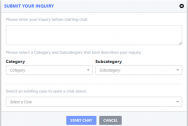Data Security: HR Has a Strategic Role to Play
Myth: Data security is a highly technical and esoteric undertaking that is solely the responsibility of an enterprise organization’s IT department.
Fact: Data security is an increasingly significant concern and function of many stakeholders, including HR.
HR is both a huge generator and an enormous consumer of sensitive information about employees and the company.
The kinds of information HR generates and stores have expanded rapidly in the last decade or two. So have the storage capabilities and amount of data HR is responsible for creating and archiving. It wasn’t so long ago that most of the communication between HR and employees or leadership was spoken, handwritten, or typed onto paper. In addition, it was either never retained or was saved only until the schedule called for it to be shredded or tossed out to make more room in the filing cabinets and storage rooms for newer documents.
That was before the world of digital communication and computerized storage technology found its way into nearly every corner of HR. Even spoken communications between an HR team member and an employee seeking support can be digitized, categorized, analyzed, and stored indefinitely. Think about all the information HR holds around everything from details about employee benefits and personal information, to departmental turnover rates, to claims of managerial misconduct.
On the one hand, this shift in the technological landscape of how sensitive data is handled has put an enormous burden on the shoulders of HR. Want proof? The 2012 Strategic Review and Outlook for the U.S. Legal Services Industry, from the international market research firm BTI Consulting Group, reported that data security was primed to exceed most other practice areas in the number of items handled last year and in annual billings per item.
On the other hand, the tools available for collecting, analyzing, and storing data have given HR the opportunity to be a proactive partner in how the enterprise organization protects employee privacy and reduces company risk.
An automated HR case management solution represents part of this phenomenal growth in both HR’s reliance on technology and its ability to use technology for data security and corporate risk-reduction. A fully featured HR case management system, like LBi HR HelpDesk, has advanced security features and reporting capabilities that support HR in the crucial tasks of determining how data is classified and organized, how records are retained, and how security policies are developed.
Specific features of LBi HR HelpDesk that ensure data security include:
- Configurable security access
- Complete audit trails of all cases
- Integration with Single Sign-on (SSO)
- Tracking of all interactions with employees
- Multiple priority levels
- Case visibility settings (e.g., set case confidentiality)
Finally, another last myth to debunk: To ensure data security, you need a dedicated-server environment.
Fact: Either a dedicated-server environment or Software-as-a-Service (SaaS), with the right system, can protect how your data is gathered, stored, and analyzed. LBi HR HelpDesk offers both options: dedicated-server hosting and cloud-based SaaS.
With the first, your system is hosted on a dedicated server in a SAS 70 Type II/SSAE 16 Type II-compliant secure hosting facility. Your deployment includes a separate instance of the LBi HR HelpDesk application, database, operating system, and Web server. With the cloud-computing environment, you access your LBi HR HelpDesk system through highly secure and SAS 70 Type II/SSAE 16 Type II-compliant, high-speed connections to physical servers.
Image source: The Data Rescue Center






Additional security measures LBi utilizes are data encryption at rest, Intrusion Detection at the network and server level, DOD certified data backup media destruction, VPN, and other utilities.